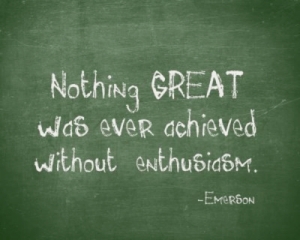Gary: Okay. So Greg, tell us about what Seopa is and does.
Greg: Seopa actually started as a search engine optimization company which is where we get the S-E-O in SEOPA from. We started off doing SEO in the insurance and finance space. But as the years progressed we moved into insurance and financial comparison technology and that’s our current main focus.
Gary: Where does most of your business come from?
Greg: We’re based in Northern Island but actually we operate mostly in Great Britain. So we’ve got two main brands, we’ve got Quotezone.co.uk which is our “whole of UK” price comparison engine and we’ve got CompareNI.com which is our Northern Ireland price comparison engine. Over 90% of our current visitors would be from mainland UK.
Gary: For people who don’t know, you’re a bit like some of the big TV advertisers like Compare the Market, Go Compare. That’s the same sort of business that you’re in.
Greg: That’s very similar. With most of our car, van, bike and home insurance comparisons, we operate a pretty similar model the companies you’ve mentioned.
Gary: Right. So you’ve been working on in this market for what, six years? Something like that?
 Greg: We actually started back in 2004 so we’ve been in it longer than some of our competitors. We launched the UK’s first UK van insurance comparison system, for example. So we’ve got quite a lot of expertise in this industry. The main difference between us and ones you may have seen on UK television is exactly that – they’ve spent a lot of money on television advertising.
Greg: We actually started back in 2004 so we’ve been in it longer than some of our competitors. We launched the UK’s first UK van insurance comparison system, for example. So we’ve got quite a lot of expertise in this industry. The main difference between us and ones you may have seen on UK television is exactly that – they’ve spent a lot of money on television advertising.
Gary: A big thing in your business, Greg, obviously is traffic, people coming on and getting quotations and so on. How do you get that when you’re not advertising on TV?
Greg: We started off with a budget of a few pounds to buy and host our first website. We’ve always tried to self-fund our growth where possible rather than having to give up a large part of the company to someone else. Because of that, we’ve had to grow fairly organically. That meant that we had to find ways to market that we could measure and that would give us a fast return on investment.
Because we started off in search engine optimization, that was one area of expertise that we had, and we were able to use that to promote the website – and we continue to do this. But we also have developed a number of other ways we bring our product to market using online methods. We do everything from SEO through Pay per Click through to referrals from other websites, and for a select number of companies we have entered into some arrangements where they can direct their customers to a co-branded version of our websites in order to get quotes.
Gary: Very good. So really you’ve been using smart online means of marketing.
 Greg: Yeah. We’ve didn’t have the luxury of having big pockets, certainly in the early days, to just throw money at something and see if it works. So we took a more measured and calculated approach. We found that the online market was the easiest way we could do that. My brother Ian and I basically run the company. We’re both engineers and we’ve always taken a mathematical and “engineering” approach to things such as marketing. Marketing doesn’t have to be a hit and miss thing.
Greg: Yeah. We’ve didn’t have the luxury of having big pockets, certainly in the early days, to just throw money at something and see if it works. So we took a more measured and calculated approach. We found that the online market was the easiest way we could do that. My brother Ian and I basically run the company. We’re both engineers and we’ve always taken a mathematical and “engineering” approach to things such as marketing. Marketing doesn’t have to be a hit and miss thing.
Gary: Okay. What has that resulted in, then, in terms of your company growth – in terms of the volume of business you’re doing, in terms of the number of site visitors, or the volume of quotes that you provide? Has this approach been successful for you?
Greg: It’s worked very well for us. We find that, because at the moment, the majority of our customers come from an online source, they tend to be a different pool of people than those that may be visiting our competitors’ sites. Typically people go there because they have been taken there by their above-the-line television advertising. But we get a lot of customers that come to us who don’t go to the other comparison sites as much. So we get a fairly healthy conversion rate on those who come and get a quote from us.
Gary: So the result is that you’ve seen very healthy growth, Greg, particularly over the last four years or so. How big is Seopa in terms of employees for example?
 Greg: Well, we started off with just a couple of people working from home. Since then we’ve set up a European IT facility in Romania and our office in Belfast city centre. So we’ve now grown to be around 30 people in Romania and just under 30 here in Belfast. Our turnover’s taken a similar growth. When we formed a limited company I think our turnover was between three and four hundred thousand a year. Our most recent year’s turnover is about ten million. So we’ve come on quite considerably over the short history of the company.
Greg: Well, we started off with just a couple of people working from home. Since then we’ve set up a European IT facility in Romania and our office in Belfast city centre. So we’ve now grown to be around 30 people in Romania and just under 30 here in Belfast. Our turnover’s taken a similar growth. When we formed a limited company I think our turnover was between three and four hundred thousand a year. Our most recent year’s turnover is about ten million. So we’ve come on quite considerably over the short history of the company.
Gary: I see from the display on the wall, Greg, that you’ve been a Deloitte Fast 50 company over the last three years.
 Greg: Yeah, we got a Deloitte Technology Fast 50 three years in a row – it’s been very good in helping us gain business partners and for the staff it’s been a sort of external pat on the back to show how well we’ve done. Actually this year we also won a Deloitte EMEA Fast 500 award, which placed us in the Top 500 technology companies in the EMEA region in terms of turnover growth which was a very pleasant surprise for us.
Greg: Yeah, we got a Deloitte Technology Fast 50 three years in a row – it’s been very good in helping us gain business partners and for the staff it’s been a sort of external pat on the back to show how well we’ve done. Actually this year we also won a Deloitte EMEA Fast 500 award, which placed us in the Top 500 technology companies in the EMEA region in terms of turnover growth which was a very pleasant surprise for us.
Gary: You’ve alluded to your own story here, Greg, which I think is very interesting because here you are running a company of around 60 people and you recently won a Young Business Person of the Year award in Belfast. You’ve built this company from scratch, from the ground up. Tell us just a little bit about deciding that you were going to do something like this.
Greg: Well, I won a scholarship to university to study Mechanical Engineering, and as part of that I worked for Shorts, as it was then, or Bombardier now, for my sandwich year. And as well my four year MEng degree course had summer placements. That gave me a good feel for business and particularly manufacturing. I particularly liked the sort of practical or applied aspects of the university course – it wasn’t just theoretical. It was something that you could bring into real life.
So when I left university, I began working as a stress engineer for Bombardier and while it was a good place to work and I enjoyed it, I began to realize that it wasn’t really what I wanted to do. So I started to think of ways that to make a few extra pounds in my spare time, and I realized then that – this was back in early 2000s – the internet might be worth a look. What I liked about it was that it was relatively free to use. The only thing that would stop me from doing something there would be how many hours that I could put into it.
Gary: So tell us something more of your own story.
 Greg: So at first I started using my father’s computer at weekends and I taught myself how to make web pages. I then realized that I needed to find a way to get a variety of people to visit my websites, not just the young computer “nerds”. So I then started reading up on Search Engine Optimization and eventually I found ways to get more people to come to my websites. And then on those websites I put adverts or banners for insurance brokers who were willing to pay me for sending them leads.
Greg: So at first I started using my father’s computer at weekends and I taught myself how to make web pages. I then realized that I needed to find a way to get a variety of people to visit my websites, not just the young computer “nerds”. So I then started reading up on Search Engine Optimization and eventually I found ways to get more people to come to my websites. And then on those websites I put adverts or banners for insurance brokers who were willing to pay me for sending them leads.
Basically that worked and I earned a few pounds in my first few months. But after a short time, I was making a lot more at home at the weekends than I was in my full time job. So I began thinking about leaving my job to work for myself, but I was a bit worried that the bubble might burst. It took me quite a long time to the courage and, I suppose, enough money to fall back on, to move and try this as a proper business. That didn’t happen until I’d worked for around three and a half years, so it was around mid-2003 that I left Shorts.
Gary: When people talk about technology companies, startups in Northern Island, one of the things people talk about is funding and how to fund a business and so on. Has that been an issue for you?
 Greg: It hasn’t really been an issue for me. If I was going to start a shop where someone had to walk through the door then I’d need a way to get access to money for property. but because the internet area opens so many virtual doors, you don’t really need a lot of money – you just need an idea and hard work –that’s really what got us going.
Greg: It hasn’t really been an issue for me. If I was going to start a shop where someone had to walk through the door then I’d need a way to get access to money for property. but because the internet area opens so many virtual doors, you don’t really need a lot of money – you just need an idea and hard work –that’s really what got us going.
And we’ve been lucky enough over the years to get some support from InvestNI who helped us to accelerate our growth, but we ultimately are still in the fortunate position where I’m the 100% shareholder and have the power to make the decisions that I think are fit for the business, which lets us move and react, perhaps more quickly than some other companies would be able to.
Gary: With the fast growth that you’ve had over the last few years, presumably the operation of the company is very different from what you were doing in the very early days when there were two or three of you. What has that transition been like, and what are the challenges you faced in running a fast-growing technology company?
 Greg: As I said earlier, I came from an engineering background and so I didn’t really have any business training other than some small parts of my degree course. In the early days it was all hands on deck, get stuck in, get everything done. Pretty soon, you come to realize that there are only so many hours in a day for each person, so we had to take on more people – that was the first major challenge. Things like how do you identify the right people at interview was a bit of a learning process for us, but we got the company to a point where we had good people in place and were able to delegate work. That brought its own challenges – with so many other people now doing things, how do you manage that and make what is being done is of the right quality? So we’ve learned by doing and we’ve had to continually reinvent ourselves over the past few years. We’ve moved from being a micro-company towards having more business processes in place. But always, we want to maintain our agility.
Greg: As I said earlier, I came from an engineering background and so I didn’t really have any business training other than some small parts of my degree course. In the early days it was all hands on deck, get stuck in, get everything done. Pretty soon, you come to realize that there are only so many hours in a day for each person, so we had to take on more people – that was the first major challenge. Things like how do you identify the right people at interview was a bit of a learning process for us, but we got the company to a point where we had good people in place and were able to delegate work. That brought its own challenges – with so many other people now doing things, how do you manage that and make what is being done is of the right quality? So we’ve learned by doing and we’ve had to continually reinvent ourselves over the past few years. We’ve moved from being a micro-company towards having more business processes in place. But always, we want to maintain our agility.
Gary: Greg, what are the main challenges that managers, people running a business, face? What are things that really challenge you and your management team?
Greg: One of the main challenges, I suppose, is that you just can’t do everything yourself. So you need the right people working with you. And finding the right people can be very difficult and that’s certainly been something that we’ve learned a lot about along the way.
And once you’ve got the right people, you need to manage them, get the right reporting processes in place and make sure that you give people an appropriate level of responsibility in order to grow. But you’ve got to go on and work out how you can make your company an effective and efficient operation, but at the same time – and this is very important – not stifle innovation. Our main challenges along the way have been in those areas.
We have another unique challenge, in that our teams are not only on three different floors in one building in Belfast, but also in two countries. So we’ve had to continually reevaluate and adapt how we work together with our colleagues several hundred miles away.
Gary: Greg, you’ve got a fairly young team here. A lot of the people that you’ve hired have been graduates fresh out of university. Tell us a bit about your team and the characteristics of people that work here and the culture that you have in the company.
 Greg: My view was that I was able to start a company with no particular business training and got it to work because I thought I could do it and I believed in myself. That’s the sort of people we look for. When we look for people to join the company, I’d much rather they were capable , enthusiastic and intelligent even if they don’t have lots of experience – people like that can learn, innovate and grow with us whereas having 10 years’ experience in a role doesn’t necessarily mean you are good at it. That’s been our approach largely, so you’ll find that most of the people that work for us fit that bill. They’re energetic. They care about the company. They work very hard. Nothing’s ever too much of a challenge for them and they solve problems. It’s that attitude that lets us continue to grow and work hard together and succeed.
Greg: My view was that I was able to start a company with no particular business training and got it to work because I thought I could do it and I believed in myself. That’s the sort of people we look for. When we look for people to join the company, I’d much rather they were capable , enthusiastic and intelligent even if they don’t have lots of experience – people like that can learn, innovate and grow with us whereas having 10 years’ experience in a role doesn’t necessarily mean you are good at it. That’s been our approach largely, so you’ll find that most of the people that work for us fit that bill. They’re energetic. They care about the company. They work very hard. Nothing’s ever too much of a challenge for them and they solve problems. It’s that attitude that lets us continue to grow and work hard together and succeed.
Gary: You’ve reached the point where you’re a significant player in the UK market in the business you’re in. Do you have plans for the future of the company from here on?
Greg: Yeah. We’ve always got very big plans. We’ve never got to a point where we didn’t know what to do next. Our challenge has always been “How can we get it done as fast as we can?” Looking forward, we’ve got a very good set of technology, we’ve got more systems and more of a product range than perhaps any of our rivals. So our two challenges really are “How do we get as many people in the UK as possible to use these systems and benefit from them?” and, “How do we take this system on to a global marketplace?” Those are the two primary aims in terms of a business expansion over the next few years.
Gary: Let me ask you something slightly different Greg. What is Greg Wilson really good at? How did you get good at it?
 Greg: That’s a good question. I don’t know if I’m particularly good at any one thing but I’ve always been very determined. If something doesn’t work, I’m not happy to just let it sit. I will keep at it or get other people involved or do whatever is necessary until we can get it to work. And I think because of that, that’s how our company works – people know that it’s not okay to give up, and when they start something they have to keep at it until they get it to work. So really, I think if I had to pick one thing it would just be determination.
Greg: That’s a good question. I don’t know if I’m particularly good at any one thing but I’ve always been very determined. If something doesn’t work, I’m not happy to just let it sit. I will keep at it or get other people involved or do whatever is necessary until we can get it to work. And I think because of that, that’s how our company works – people know that it’s not okay to give up, and when they start something they have to keep at it until they get it to work. So really, I think if I had to pick one thing it would just be determination.
Gary: Very good. And if you were giving some advice to another person, a young person, who’s working in a bigger company at the moment and he or she’s thinking “I really would like to start my own business”, what sort of advice would you give to them?
Greg: I think the thing that worked for me well was having the confidence that I knew I could get something to work. You don’t need money. You just need to be willing to take some of your free time and use that time to try something. I think, learn as much as you can about what it is you’re trying to do and give it a try. But you’ve got to stick with it if it’s going to work. It won’t just happen overnight unless you’re very lucky. It’ll have to be something that you really do put your heart and soul into in order to get it to take off.


